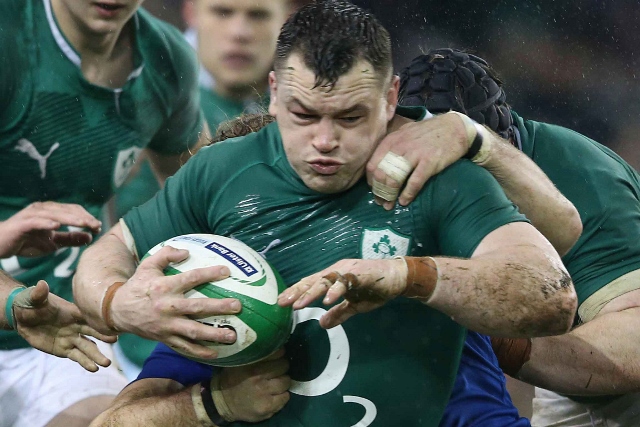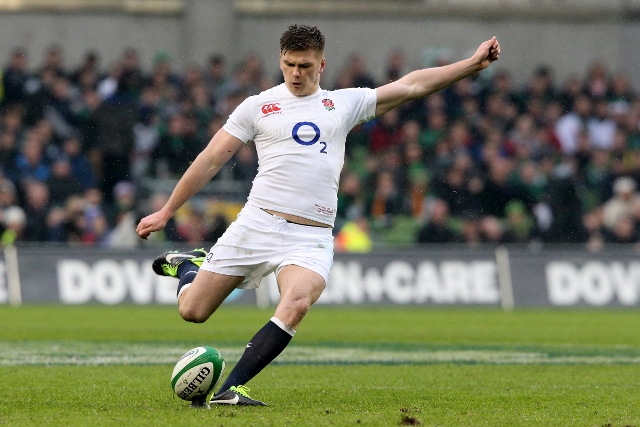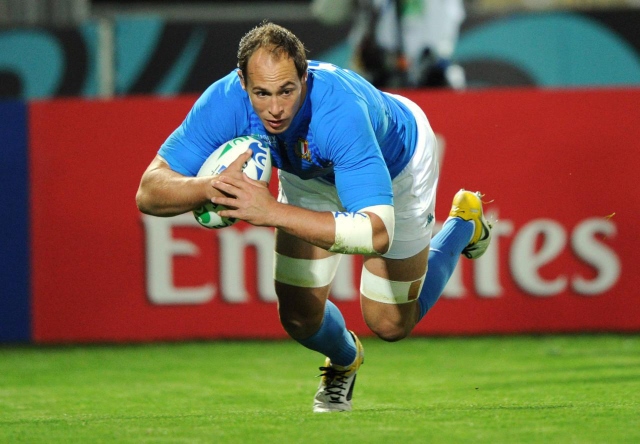Conor Bates | Sports Editor & Cathal Groome | Staff Writer
Nation: Ireland
Last Year’s Finish: 5th
This Year’s Finish? 4th
Prospects:
Ireland had a very mixed November Series with the disappointing low against Australia and the encouraging performance against New Zealand, even with the heart breaking end to the match. Despite this positive performance Ireland are still adjusting to Joe Schmidt’s way of playing. It is unreasonable for people to expect that the players to truly be comfortable with his style of play just yet. Often we have seen Ireland produce one-off world-class performances and then fail to back them up.
Ireland also have some selection issues to deal with due to the fact that Sean O’Brien is out injured for the vast majority, if not all, of the tournament. Chris Henry is the obvious replacement for O’Brien even if he’s a different sort of player. The idea is that due to the fact that Henry is a more stereotypical openside, he will liberate Heaslip to become the primary ball carrier. Another option would be Jordi Murphy who has been deputising for O’Brien at Leinster and performing very well. There are decisions to be made in the midfield as well. This is Brian O’Driscoll’s final Six Nations and as such the very talented Robbie Henshaw from Connacht should be given at least one start to ease him into the Irish 13 jersey, as he appears the heir apparent to O’Driscoll’s throne. Furthermore, at inside-centre Luke Marshall must continue to be given opportunities given the fact that Gordon D’arcy is not far from retirement either.
Ireland have a lot of work to do in Six Nations rugby after last year’s performances. Poor play cost Declan Kidney his job last year, and Irish fans will be expecting a marked improvement from their nation. With trips to Paris and London this year’s tournament will prove difficult for an Ireland team in transition. On top of this, the first home match against a more settled Welsh side will be a tough task. However, Wales will be missing some crucial players and a victory against them could provide the team with great impetus going on through the tournament. If Ireland can replicate the performance against New Zealand on a consistent basis then there is a chance that Ireland could be champions. It is, however, hard to see this being the case.
Key Players: Johnny Sexton (fly-half), Paul O’Connell (lock forward), Robbie Henshaw (centre)
Nation: Wales
Last Year’s Finish: 1st
This Year’s Finish? 1st
Prospects:
Reigning champions, Wales, have a lot to look forward to this year. Following an incredible 2013, in which they won the Six Nations, saw a great number of their players called up for the Lions tour to Australia and finished with some very solid autumn performances, it is safe to say that Wales can look forward to a bright 2014 as well. They are also in receipt of a favourable schedule for this year’s competition, with their only away fixtures being against England, and their only conquerors last year, Ireland.
One of the other major potential determining factors in this year’s tournament is the return of Warren Gatland to the fold. Although his absence last year appeared to make little difference to the Welsh results, there are none as steely and ruthless in the game as Gatland, and his presence will surely bolster. The only issues
At this point in time, there are probably few more complete teams in the international game than Wales. Starting with their pack, Adam Jones and Alun Wyn Jones are among the marquee names who are not to be messed with. Wales are strong in the scrum and clever at the lineout. Effective mauling has always been key to the Welsh game, and when they get pushing, it is very hard to stop them.
Similarly, their backs possess a fearsome quality. Jamie Roberts is deft and powerful at centre, while Alex Cuthbert and, in particular, George North, are among the fastest, strongest, most brutish wingers in the game. Stature and pace are a potent combination, as Wales have proven time and again. Last, but absolutely not least, Leigh Halfpenny is a dynamo at fullback. Halfpenny epitomises the strength, speed and flair that Wales possess, and he brings security in the form of his accurate kicking. Halfpenny’s boot is fairly near immaculate with the dead ball, and he will punish any team with penalties.
Wales are dangerous. Very dangerous. Even with their current injury worries, they are not to be underestimated. The last time they had a bad run of form was late 2012. Many people wrote them off for last year’s championship as a result. Look how that turned out.
Key Players: Leigh Halfpenny (fullback), George North (wing), Alun Wyn Jones (lock forward)
Nation: England
Last Year’s Finish: 2nd
This Year’s Finish? 3rd
Prospects:
England are among the more consistent performers in the game. For the most part, they have turned out very solid contributions to recent Six Nations, World Cups and autumn internationals, and are rightly regarded as serious challenge to overcome on the path to glory. Last year’s championship was very successful, with four wins for England, and only a hammering at the hands of champions, Wales, bringing a negative to their final standing. Their positive performances were reflected in a good call-up rate for the Lions tour to Australia.
Similarly, England have maintained some semblance of momentum in winning two of their three autumn internationals, including a victory over Australia, and only losing to the unbeaten All Blacks. The draw is also in their favour, with only a trip away to France seeming like a truly problematic fixture.
England are very powerful in the pack. The majority of their call-ups to the Lions touring squad came from the front-row, and they have shown great depth in these positions in recent years. Throughout the pack, Tom Croft, Geoff Parling and captain Chris Robshaw have been standout performers.
Their talent is not confined to the pack, however, with Owen Farrell taking the placekicks for the side. Farrell is one of the brightest stars in the game, and big things should be expected from him as he develops. Manu Tuilagi is a force of nature at centre, and the tournament will surely not pass without a few moments of magic from him.
English rugby has drawn a large amount of criticism, mostly from British pundits, about the development of homegrown players. The best part of England’s game for the last few years has been the aforementioned scrum, which contains a considerable amount of players qualifying on the “Irish granny” style rule. Mako Vunipola, Dylan Hartley and Thomas Waldrom are mere examples of the extent of this practice. Similarly, Tuilagi is the prime example of foreign-English athletes in the backline. While this is a problem for English rugby down the line, at the moment it leaves them with a very decent squad for the impending championships. They will do well, as always, but maybe not well enough.
Key Players: Owen Farrell (fly-half), Chris Robshaw (flanker), Manu Tuilagi (centre)
Nation: France
Last Year’s Finish: 6th
This Year’s Finish? 2nd
Prospects:
France are an enigma that few rugby pundits can wrap my head around. Man for man they arguably have by far the best team in the northern hemisphere but are often unable to transfer their obvious talent onto the pitch. In last year’s tournament they finished last after a hugely impressive and positive autumn series. Freddie Michalak had seemed to have finally brought some consistency to his obvious talent however throughout the tournament his performances were so poor that they bordered on comedy.
What can you expect then after a largely disappointing November Series? With France form goes out the window. This year there is less pressure on the French. Perhaps this may liberate them and allow them to play some of the exhilarating rugby that they are known for. There is no question that they have the talent, led by the outstanding Wesley Fofana. Last year he was the best player for France and his outstanding solo try against England was without question one of the best tries the tournament has seen.
The greatest issue which faces the French is who plays at fly-half. Over the years they have experimented with many different options but to no avail. These issues can be seen that some of the biggest clubs in France have foreign players at fly-half. Playing Michalak last year backfired spectacularly and his chances are surely over. One of the options that the French coach, Philippe Saint-André, used in the November series was Remi Tales from Castres; hardly a household name but perhaps in a team of individualistic stars this is who they need at the helm, dictating their play. Jules Plisson who has been keeping Morne Steyn out of the Stade Francais team this season has also been drafted in and could be an exciting, if risky call. He is supremely talented but throwing him in against England in the first round could be a flop due to his complete inexperience at international level.
If the French management get the fly-half selection right then they are in with a chance especially considering French teams usually perform well after a Lions tour. However, it is impossible to predict what type of French team will turn up on any given day.
Key Players: Wesley Fofana (centre), Theirry Dusautoir (flanker), Jules Plisson (fly-half)
Nation: Scotland
Last Year’s Finish: 3rd
This Year’s Finish: 5th
Prospects:
Scotland built a very solid Six Nations campaign last year when no one expected them to. Two wins may not seem like a lot, but given performances of years gone by, it was certainly an improvement. Despite a remarkable third place finish last season, it is hard to see Scotland repeating their effort once more. Although dealt a favourable schedule of France and England at home, their heroics of 2013 will likely be confined to yore.
Their change of fortune was down to a grinding gameplan instituted by interim coach Scott Johnson. Previous coach Andy Robinson had done a lot of work on improving the Scottish defence, without much return. Johnson seemed to make this hard-hitting defensive structure work, and through shoring up opposition attacks, Scotland began to profit. A weak pack, led by the contrastingly omnipotent Richie Gray and Euan Murray, made some unforeseen inroads.
There were also improvements in attack, with the introduction of Sean Maitland, and the pacey Stuart Hogg, causing problems for defensive players. Powerful ball carrying from Gray was also a feature of the Highlanders forward movements. It says a lot about Scotland that these were the only three players called up to Warren Gatland’s original Lions squad.
The only other player who may have deserved a nod was Greig Laidlaw. The scrumhalf was very effective with his boot, scoring sixty-one points for Scotland, and finishing second in the points scorers’ standings. Laidlaw is very consistent, and may be able to ease the Scots woes again this year.
The reason that Scotland aren’t a threat this year is the same as every other year; the gulf in class that still exists. They beat two weak nations last year in Ireland and Italy, but failed at the other three hurdles, quite dramatically against England, proving their defence is still not quite there yet. This also proved to be the case in the autumn internationals, where Australia and South Africa dispatched them at home. Their back play is creative but not incisive enough. Their forwards, largely unchanged since last year, will struggle to deal with stronger packs.
Scotland were the surprise package last year. Surprises are usually only effective once.
Key Players: Richie Gray (lock forward), Greig Laidlaw (scrumhalf), Stuart Hogg (fullback)
Nation: Italy
Last Year’s Finish: 4th
This Year’s Finish? 6th
Prospects:
Italy’s prospects for this tournament are not very good. They had a very disappointing November Series with a narrow victory over Fiji the only victory. In addition to this poor form Italy have been robbed of some of their better players due to injury; veteran centre Gonzalo Canale, fullback Andrea Masi and wing Giovanbattista Venditti. Without this trio the Italian squad, especially the backline, is devoid of much needed creativity and experience. The much heralded Italian pack is not what it used to be with the steady demise of the once great front-row. Italy can no longer rely on their pack to grind down teams in an effort to win a game.
Similarly to France, Italy have huge problems at fly-half. Luciano Orquera is the current holder of the position, but he is a player scarcely capable of performing at club level, not to mention on the international stage. In his defence he does possess an average running game, but his inexplicable inability to defend his channel and his aimless kicking game mean he is a hugely weak link in the Italian team and frankly a liability. It is evident that Italy must find a solution to these problems and as such they have called up Tommaso Allan. Allan is a former Scottish underage player but qualifies to play for Italy due to his Italian mother. He currently is on the books at Perpignan and considering his age he has seen a good deal of first team action. He made his debut for Italy coming off the bench against Australia in November and perhaps it is time to give him a starting role. No doubt he will make mistakes due to his inexperience but he is worth the gamble in a position of real issue for Italy.
Even with the inspirational Sergio Parisse driving the team on it is unlikely Italy will have a successful tournament this year. Parisse has been something of a man mountain for the side, but even he is aging. However, Italy are in a period of change and this year’s tournament could give us a glimpse into the future of this team.
Key Players: Sergio Parisse (number 8), Tobias Botes (scrumhalf), Tommaso Allan (fly-half)
Final Standings
- Wales
- France
- England
- Ireland
- Scotland
- Italy









